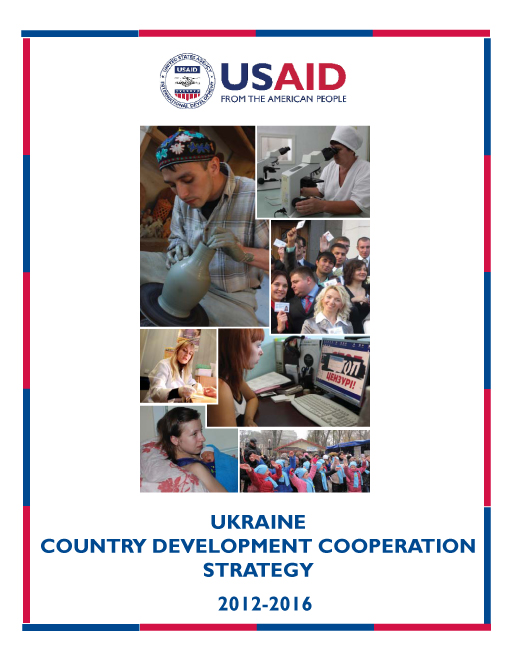Since 1991, Ukraine’s development trajectory has taken the country from a command to a market‐based economy. The United States Government (USG) maintains a strategic interest in helping Ukraine’s transition toward greater democracy and a sustainable free market economy. For over 20 years the USG, primarily through USAID, has provided critical development assistance in support of the Ukrainian people. Much of this development assistance has helped Ukrainians experience increased political freedoms, stronger transparency guarantees and more economic and social opportunities.
The Country Development Cooperation Strategy (CDCS) identifies the main development challenges for Ukraine as the centralization of power in the Executive Branch and poor government effectiveness. The country’s shift toward a more authoritarian political system, which resulted in its being downgraded in Freedom House’s 2011 rankings to “partly‐free,” complicates bilateral relations. Corruption in Ukraine is pervasive and undermines the legitimacy of its governing institutions, especially the court system. The 2008 economic crisis also revealed structural economic weaknesses in the financial sector, tax system, and business regulation and administration ‐ all of which need comprehensive reform. In addition, Ukraine’s energy sector is highly wasteful and emission‐intensive. Finally, the health care system has continued to weaken since independence, leaving social services structures too weak to respond to Ukraine’s health and demographic problems.
However, in spite of these daunting challenges, a number of positive developments have occurred, which give grounds for optimism. For example, the creation of a stable majority in the 6th convocation of the parliament initially enabled the Party of Regions‐led government to break a persistent legislative deadlock and move forward on a number of key reforms, including pension reform, which had been stalled for years under previous administrations. That momentum has dissipated, however, due in part to the political crisis brought on by the trial of some opposition politicians. Ukraine also made commitments at the UN Global Climate Change Conference to reduce greenhouse gas emissions, became a member of the European Energy Community, and made significant progress towards concluding a free trade agreement with the EU, although further progress on the latter is contingent on the restoration of democratic momentum. The formation of a joint action plan in February 2011 between the USG and the Government of Ukraine to address HIV/AIDS in Ukraine also creates an opportunity for deeper collaboration.
As a result of assessments and analyses, extensive Mission internal discussions, and meetings with over 800 stakeholders, including donors and counterparts, the Mission has formulated its goal for the 2012 to 2016 period: A More Stable, Democratic and Prosperous Ukraine. In order to achieve this goal, the Mission has set three Development Objectives (DOs): (1) More Participatory, Transparent and Accountable Governance Processes; (2) Broad‐Based, Resilient Economic Development as a Means to Sustain Ukrainian Democracy; and, (3) Improved Health Status in Focus Areas and Target Groups. In addition, the Mission has two special objectives: 1) to support the Chornobyl Shelter Fund as part of the international effort to assist Ukraine in the cleanup of the Chornobyl Nuclear facility; and 2) countering trafficking in persons. In the coming years, USAID will build on the foundation of its strong relationship with Ukraine to deliver sustainable development impact in all sectors of Ukrainian society, enabling Ukraine to further integrate with Europe and the West.









Comment
Make a general inquiry or suggest an improvement.